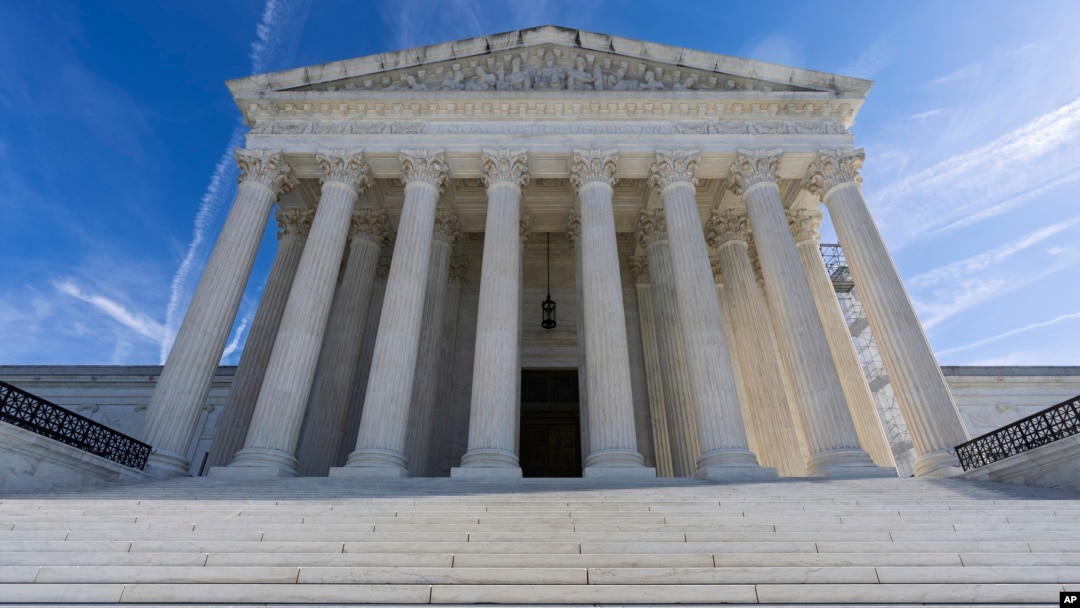TikTok has lost its appeal to the U.S. Supreme Court for a reprieve from a law that it shut down its operations in the United States on Sunday unless it can demonstrate it is close to a sale to divest itself from its China-based parent company, ByteDance.
The court acknowledged that for TikTok's 170 million American users, the platform "offers a distinctive and expansive outlet for expression, means of engagement and source of community. But the justices added that the U.S. Congress "has determined that divestiture is necessary to address its well-supported national security concerns regarding TikTok's data collection practices and relationship with a foreign adversary."
"Without doubt, the remedy Congress and the President chose here is dramatic," Justice Neil Gorsuch wrote in his concurring opinion. "Whether this law will succeed in achieving its ends, I do not know."
Amid the looming deadline, there is some bipartisan consensus on giving TikTok some extra time.
It is not known if TikTok will switch off access immediately after losing its final bid in the American judicial system, where it unsuccessfully argued its First Amendment free speech rights were being violated by the law President Joe Biden signed last March.
Biden, leaving St. John's Church after a brief visit, was asked by a reporter what he thought about the Supreme Court's decision. He replied that it will be up to the next administration to take action.
The White House, prior to Biden's remark, issued a statement noting the outgoing president's stance that TikTok should remain available to Americans but preferably under American ownership.
"Given the sheer fact of timing, this Administration recognizes that actions to implement the law simply must fall to the next Administration, which takes office on Monday," said the White House press secretary, Karine Jean-Pierre, in the statement.
The named defendant in the case that went to the Supreme Court, the attorney general of the United States, Merrick Garland, in a statement welcomed the justices' decision, but like the White House, indicated there would be no immediate enforcement come the Sunday deadline for TikTok to divest ownership or cease operation in the United States.
"The next phase of this effort — implementing and ensuring compliance with the law after it goes into effect on January 19 — will be a process that plays out over time," stated Garland.
On Friday evening, TikTok said on X the statements from both the Biden White House and the Department of Justice "failed to provide the necessary clarity and assurance to the service providers that are integral to maintaining TikTok's availability to over 170 million Americans."
"Unless the Biden Administration immediately provides a definitive statement to satisfy the most critical service providers assuring non-enforcement, unfortunately TikTok will be forced to go dark on January 19," TikTok said.
That drops the matter into the lap of Donald Trump, who is to take the oath of office for his second, nonconsecutive term as president on Monday, the day after the deadline.
Trump has recently made it clear he also does not want to see TikTok go offline in the United States on Sunday amid a possible deal for a sale.
Trump, on his own social media platform, Truth Social, said prior to Friday's Supreme Court ruling that he had just spoken to China's leader, Xi Jinping, about TikTok and other matters that would be solved "starting immediately."
In a subsequent message, the president-elect stated: "The Supreme Court decision was expected, and everyone must respect it. My decision on TikTok will be made in the not too distant future, but I must have time to review the situation."
Earlier in the day, on the official @tiktok account, the company’s Singaporean chief executive officer, Shou Zi Chew, thanked Trump "for his commitment to work with us to find a solution that keeps TikTok available in the United States."
In a shaky video he recorded himself, Chew added: "We are grateful and pleased to have the support of a president who truly understands our platform, one who has used TikTok to express his own thoughts and perspectives, connecting with the world and generating more than 60 billion views of his content in the process."
It has been reported that the TikTok CEO is to attend Trump's inauguration in Washington on Monday. "I believe that Trump will view TikTok as a card that he can play to drive a sweeter deal with China" in the trade arena, Abishur Prakash, founder of The Geopolitical Business, a Canadian advisory firm, told VOA.
SEE ALSO: Trump team might step in to save TikTok from US ban after high court upholds lawThe situation also presents a quandary for Beijing.
"China has to ensure that no specific precedent is set. If China sells TikTok, that sets a precedent throughout the West that Chinese companies can be cut down to size," according to Prakash. "But if TikTok is banned in the U.S. this opens the door to TikTok being banned elsewhere throughout the West."
Influencer Madilynn Cameron, who has more than 1 million followers, expressed excitement about Chew's posting.
"Is Trump going to save us? I never thought I'd say those words," Cameron said in a TikTok video post in which she played an excerpt from the TikTok's CEO video in the background. "This is huge. There is hope!"
There has been speculation, but no confirmation, that negotiations may be underway to have the billionaire owner of social media platform X, Elon Musk, acquire the U.S. version of TikTok.
Another billionaire, Frank McCourt, recently announced he and his internet advocacy group had submitted a proposal to ByteDance and investor Kevin O'Leary, best known from the "Shark Tank" television show, had also joined their effort.


